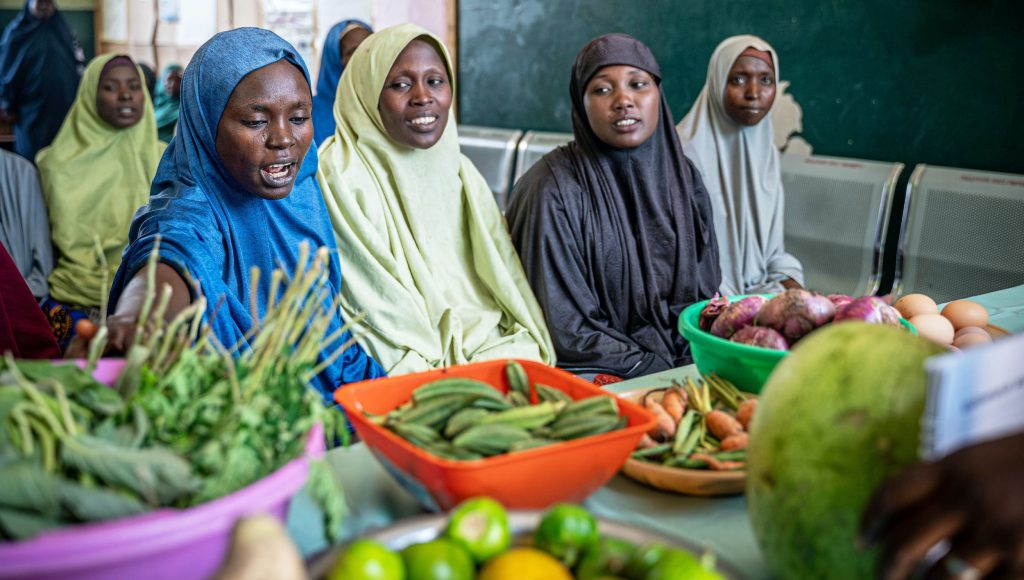
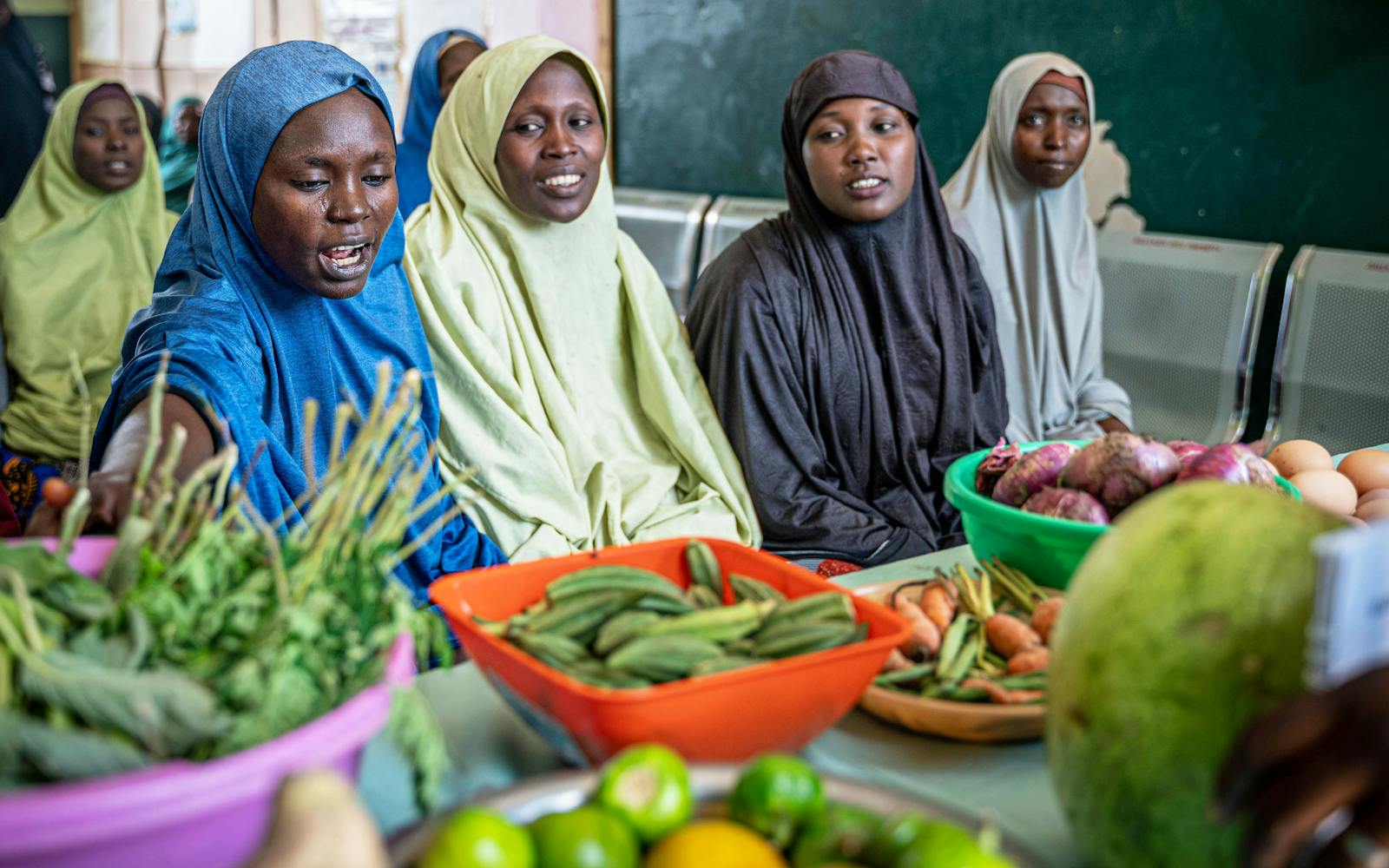
Pregnant women attend an antenatal session at Malam Sidi foremost well being Care Centre in Nigeria to discover out about getting ready nutritious meals and sustaining a balanced weight-discount plan. picture: Apochi Owoicho / UNICEF
better than 1 billion women and adolescent women are malnourished, in response to information from the United Nations. This staggering decide sheds gentle on a world disaster that has prolonged been relegated to the shadows and uncared for. When meals is scarce, women — and notably mothers — eat final and least. UN businesses are growing requires movement, so every mom can feed her baby with out going hungry herself.
4 years of floods in South Sudan have washed away entry to meals inside the nation’s northern areas. Surrounded by water and unable to develop crops or elevate livestock, mothers are feeding their youngsters the one factor they will: water lilies.
“I’ve by no means seen that earlier than in South Sudan,” says Aachal Chand, the World meals Programme (WFP) Head of weight-discount plan inside the nation, who just these days returned from visiting the world. Explaining why this act of desperation is set off for concern, she says that a “water [lily] simply isn’t in all likelihood the most nutritious factor to eat. it is carbohydrate-rich, so it is going to in all likelihood fill the stomach. [But] youngsters want a various of dietary vitamins and minerals to develop to their full potential.”
local climate change, conflicts, inflation, the COVID-19 pandemic, and utterly different forces are fueling a world meals and weight-discount plan disaster — a disaster that is disproportionately affecting women and adolescent women, particularly these in low- and center-income nations akin to South Sudan.
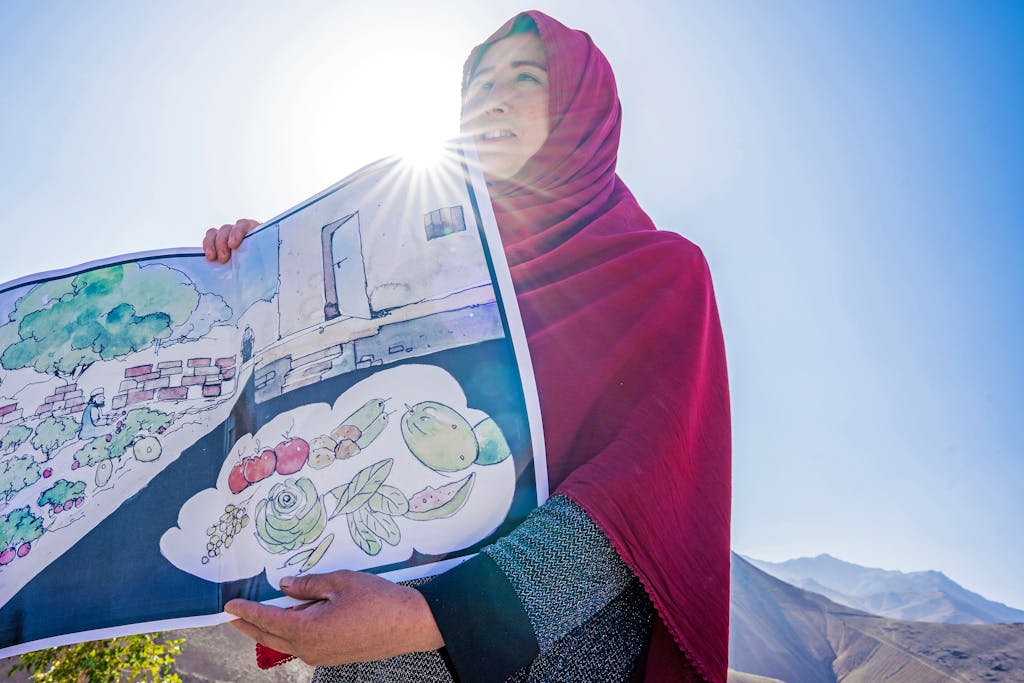
Somaya, a UNICEF-supported neighborhood well being worker, educates mothers with regard to the significance of fantastic weight-discount plan in Kitijik, Daikundi Province in central Afghanistan. picture: Mark Naftalin / UNICEF
Amid these world challenges, the well being and properly-being of women and women — and that of their youngsters — are most immediately affected. they’re extra extra probably to expertise extreme and prolonged well being risks ensuing from insufficient weight-discount plan, which — in extreme circumstances — can finish in demise. And with out speedy intervention, these impacts can ripple throughout households for many years.
“weight-discount plan is handed down … it is intergenerational,” Chand says. A malnourished mom will give start to a malnourished baby, which will enhance the likelihood of the kid performing poorly in school, and if that baby is a woman, of in the end turning proper into a malnourished mom herself. “we have now to make interventions in any respect of these vital levels of the life cycle as a consequence of they’re utterly linked to 1 one other,” Chand supplies.
The United Nations youngsters’s Fund (UNICEF) is bringing new consideration to this world meals and weight-discount plan disaster with its March 2023 report. Titled “Undernourished and uncared for,” the information confirms that the quantity of pregnant and breastfeeding women and adolescent women who’re acutely malnourished spiked by 25% since 2020. that very identical report found that women and women in 12 disaster-hit nations, collectively with Afghanistan, Ethiopia, Somalia, South Sudan, Sudan, and Yemen, are amongst the numerous most severely impacted.
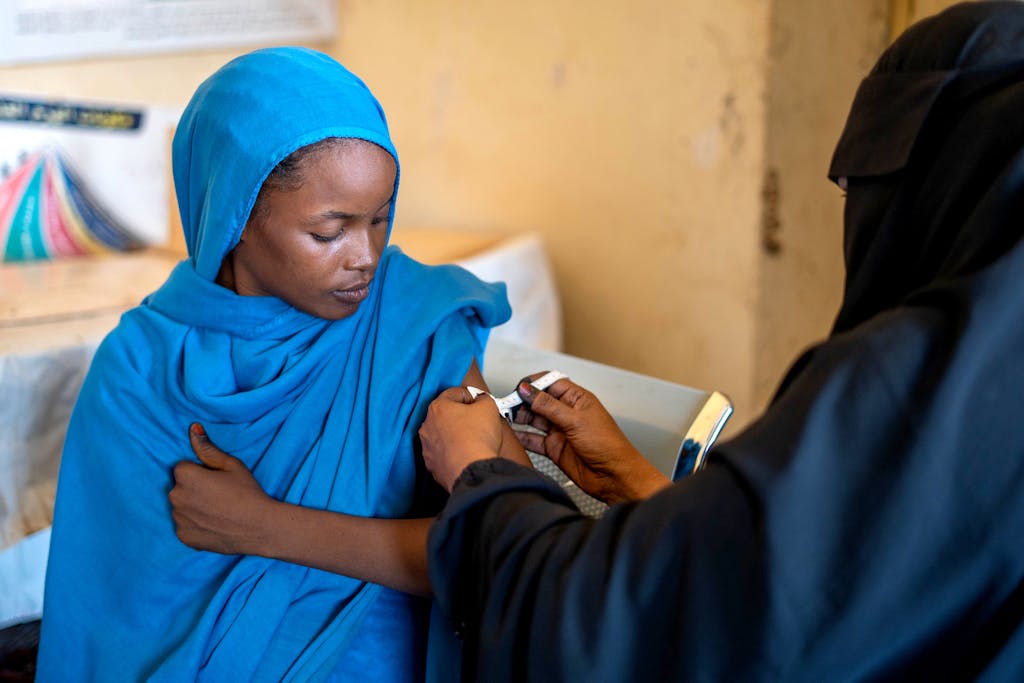
Hosnia Abdul, a 20-yr-previous, pregnant and lactating mom of a one-yr-previous son, undergoes weight-discount plan screening all through an antenatal care go to to AlBiritani well being Centre in Sudan. picture: Mojtba Moawia Mahmoud / UNICEF
Malnourished mothers
Pauline Akabwai has seen in exact phrases what the report’s hovering statistics mirror. A weight-discount plan Officer with WFP in Ethiopia, she notes that “there’s been an growing enchancment [of malnutrition] for every youngsters under 5 and women.”
In 2020, Akabwai’s group assisted 1.2 million youngsters. simply two years later, 2.1 million youngsters needed their assist. an identical surge has occurred amongst pregnant and breastfeeding women — ballooning from 600,000 women in search of assist in 2020 to 1.5 million by 2022.
Misra Amin Rashid is a sort of women. “With my 5 youngsters and that i am additionally pregnant, we eat solely breakfast and dinner ensuing from [a] scarcity [of] meals. We use solely sorghum for the two meals,” Rashid tells WFP. “ensuing from inflation, we may not afford to buy meals objects. we’re [facing a] vital drawback particularly with my being pregnant.”
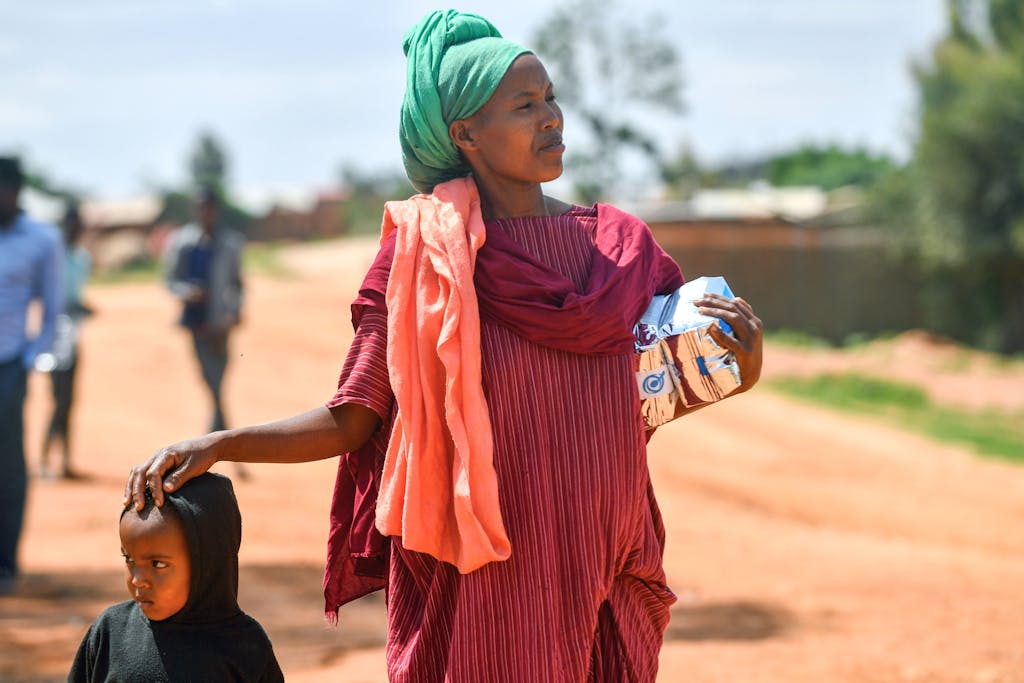
confronted with meals shortages in Ethiopia, Misra Amin Rashid has needed to skip meals, inflicting her to really feel exhausted and weak. After receiving large Cereal Plus — a large flour that dietary supplements weight-discount plan — from WFP, the mom of 5 says she feels stronger and extra energized. picture: Michael Tewelde / WFP
She is now receiving a large flour dietary complement, usually referred to as large Cereal Plus, from WFP. Since introducing the fortified flour to her weight-discount plan, she says she has seen an monumental distinction. “There are some adjustments collectively with being lively and feeling healthful since i started consuming [the Super Cereal Plus],” Rashid says. “earlier than, I misplaced urge for food, [and felt] exhausted and bodily weak.”
Shedole Kefela, 20, additionally from Ethiopia, shares a comparable story with WFP.
“i’ve not enough meals, no livestock and no utterly different livelihood means, that is the rationale my baby grew to become malnourished,” she says. “We eat solely as quickly as, solely after we get it [and if] not, we go hungry to mattress.”
She is presently promoting firewood to make ends meet, nonetheless the income from that is not enough to feed her and her household — which is why WFP’s assist has been so vital.
“with out this assist,” she says, “solely God is aware of what the destiny of my baby will probably be.” She continues, “My youngsters, if i am in a place, i would like them to be educated so as that they will attain [a] elevated diploma and be glad and healthful.”
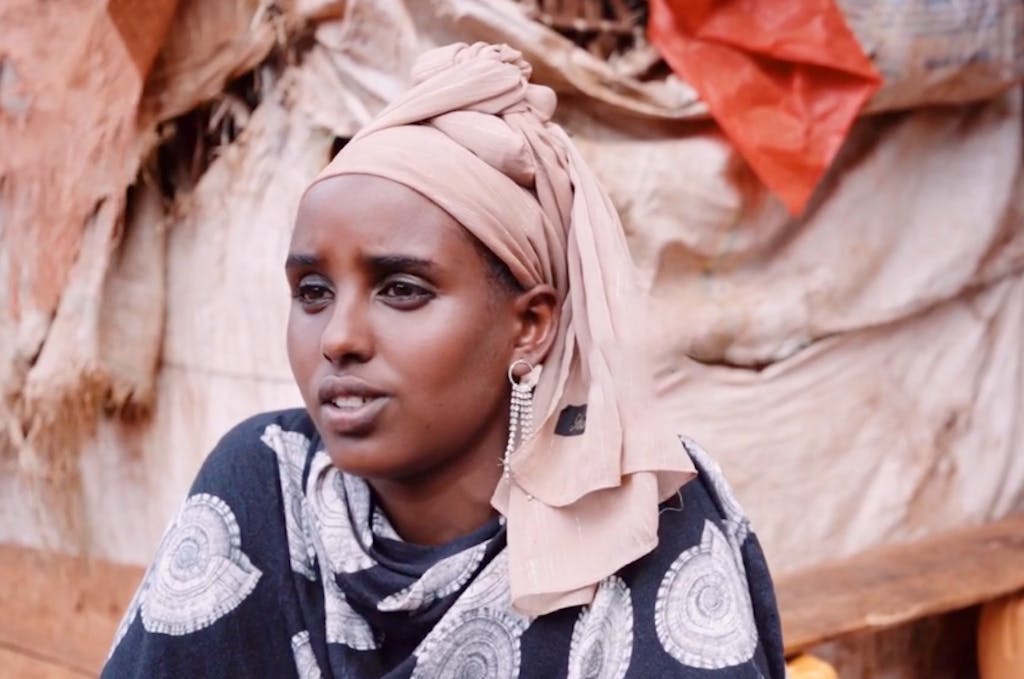
With no livestock of her personal and too little meals, Shedole Kefela and her household usually go to mattress hungry – inflicting her baby to fluctuate into malnourished. She says she is grateful for WFP’s meals assist, which is in a place to assist her youngsters develop up sturdy and healthful. picture: Hugh Rutherford / WFP
Why women and Their youngsters are Going Hungry
Intersecting world crises are disrupting of us’s entry to nutritious meals, jeopardizing their capacity to feed their households. women are particularly weak. In 2021 alone, there have been 126 million extra meals-insecure women than males, in contrast with forty nine million extra in 2019, better than doubling the gender hole of meals insecurity.
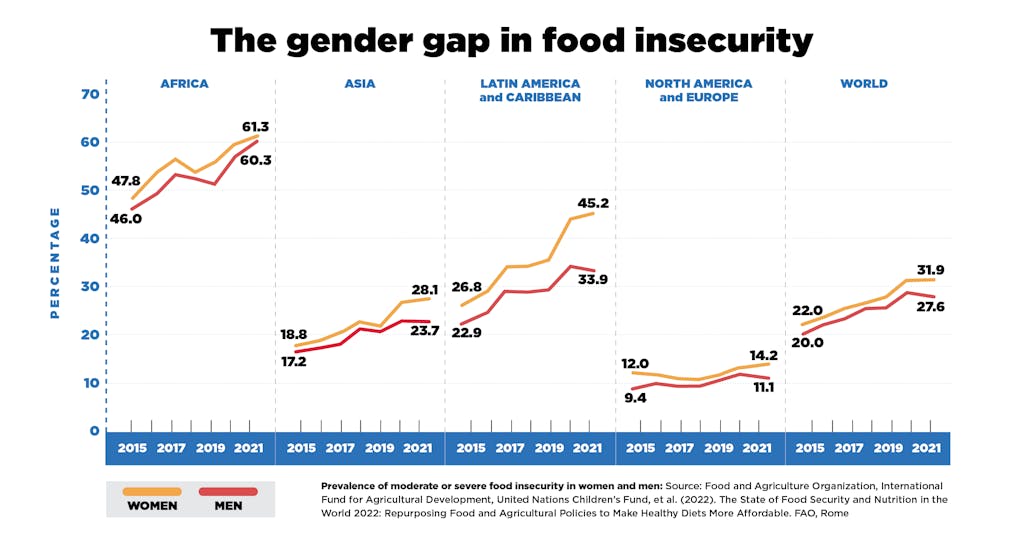
When the worldwide COVID-19 pandemic started, measures to include the virus had a distinctive influence on women than males throughout all dimensions of meals and weight-discount plan safety, as highlighted in UNICEF’s current findings. These included diminished meals manufacturing and entry, distribution capacities, and decreased incomes.
And on extreme of the outcomes and penalties of COVID-19, local climate change has continued unabated. It’s not a coincidence that the nations experiencing in all likelihood the most devastating local climate impacts attributable to drought, storms, floods, and utterly different extreme climate occasions are the identical nations experiencing report extreme ranges of meals insecurity. actually, a February 2022 report from the Intergovernmental Panel on local climate Change (IPCC) found that women and women are at elevated hazard than boys and males of meals insecurity attributable to local climate shocks.
extreme drought in Ethiopia, for event, has collided with inflation and rising meals prices to drastically scale again the nation’s meals current, forcing women to make extremely effective selections about the place to get their subsequent meal.
“When there may even be drought inside the area, notably in pastoral communities, males usually transfer to hunt for water,” Akabwai says. “women are left behind. So, all of the well being-in search of automobiles, all of the kid caring is left to the women, even meals manufacturing. They bear the burden of occurrences like drought and converging crises simply like the COVID-19 pandemic,” she supplies.
Dr. Ramadhani Noor, a weight-discount plan specialist with UNICEF in Ethiopia agrees, underscoring the significance of accelerating alternatives for women and women to take part in choice-making in any respect ranges, collectively with as leaders. “for of us who empower a woman, then you definately … empower the household and also you empower the neighborhood and in the end, the nation,” he says.
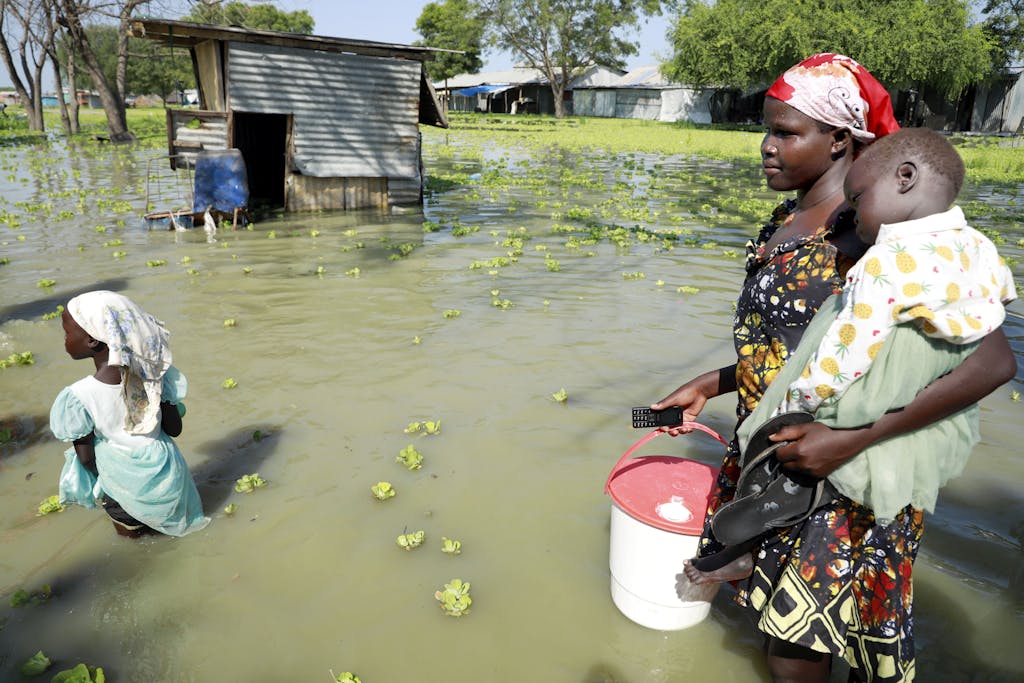
a woman and her youngsters stroll through flood water in South Sudan. meals sources have been depleted ensuing from flooding and a extreme quantity of malnutrition circumstances have been reported, particularly amongst youngsters and the aged. picture: Bullen Chol / UNICEF
how one can repair hunger for the World’s mothers
The world’s hunger drawback is truly a funding drawback.
“we’re in a situation in South Sudan, the place we take from the hungry to feed the ravenous as a consequence of we don’t have enough to deal with each,” states Chand. “There should be concerted efforts to make sure that funding retains coming in.”
UNICEF and WFP are mobilizing sources and saving lives. however till there may even be resiliency over the future, these efforts nonetheless gained’t be enough.
As Akabwai factors out, governments should “transfer from an emergency response to resilience or longer-time period tasks. If [they] can assist funding for these resilience tasks, there’d be sustainable options, not simply humanitarian [ones].”
This requires addressing underlying elements that are holding women and women again from realizing their full potential and optimum well being. Akabwai says that a holistic response can embrace investing in full well being packages, growing weight-discount plan packages, boosting cell connectivity to allow money change initiatives, and paving extra roads to make sure women can safely journey to markets.
“for of us who don’t construct resilient communities, resilient packages [then] subsequent yr, we’ll be again on the identical place,” echoes Noor.

A staff member shares UNICEF-supported meals supplies at a well being center in Anguwan Lambu, Adamawa, Nigeria, renovated with EU-UNICEF assist. picture: Andrew Esiebo / UNICEF
Chand remembers an encounter with a youthful mom of 4, illustrating how contextualized, holistic approaches for weight-discount plan assist companies are important to make an enduring influence.
After main a neighborhood teaching for mothers alongside the border of Laos and China, which amongst utterly different classes, emphasised the significance of incorporating protein into youngsters’s diets, the youthful mom advised Chand: “‘You made me really feel like a terribly unhealthy mom.’”
Confused, Chand requested why. The 24-yr-previous defined that she didn’t have entry to the devices she was advised to make the most of. She requested the place she may get eggs if she didn’t have chickens or money to buy them, and moreover, the closest market wasn’t walkable.
The lesson, Chand says, is being “delicate that you merely don’t ask of us to do issues with out giving them the means to do it, or at the very least supporting them with the means to do it.” meals packages that are “extra gender-delicate and extra gender-responsive,” are key, she supplies.
UNICEF and utterly different businesses have echoed the identical sentiment, recommending that the path to good weight-discount plan for adolescent women and women be accessible, full, and clear. The agency created an acceleration plan to cease, detect, and deal with losing — the worst sort of malnutrition — with an formidable purpose of reaching 12.2 million youngsters and 9.three million women with important weight-discount plan companies by the extreme of 2023.
as prolonged as UNICEF’s solutions are absolutely contextualized, Noor notes that they “will permit us to raised handle the idea causes … for undernutrition.”
however when it includes reversing rising malnutrition prices amongst youngsters, he is adamant that there should be a renewed focus on prevention — and that begins with taking elevated care of mothers. “till we enhance the weight-discount plan of adolescent women and women, we’re unlikely to finish childhood malnutrition,” he says.
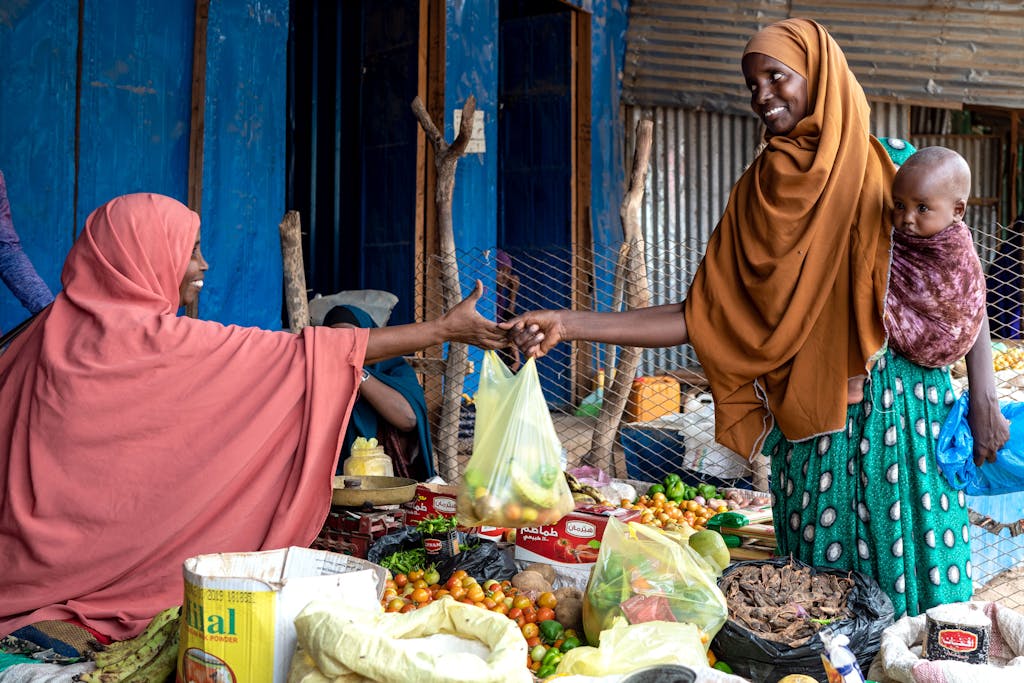
A youthful mom purchases greens at a market in Dollow, Somalia. As a part of WFP’s progressive ‘e-greens’ program, mothers who attend mom-and-baby well being and weight-discount plan facilities receive a money-primarily based incentive, which they will use to buy meals collectively with current greens, fruit, meat and eggs. picture: Knowles-Coursin / UNICEF
the underside Line on hunger: ‘A espresso and a Muffin’
however UNICEF and WFP can not deal with this world disaster alone.
For too prolonged, the worldwide neighborhood has tolerated and accepted undernourished, uncared for, and undervalued as a defining expertise for generations of women, mothers, and women.
meals is a proper for all of us. it is “a proper that is enshrined in a quantity of worldwide human rights treaties,” as underlined in UNICEF’s report.
Catherine Russell, authorities Director of UNICEF, makes the case that as a consequence of the “rights-holders, leaders, healers, teachers and innovators,” women are the reply. We should take heed to them — and put money into them, their well being, training, and their futures.
And that funding isn’t costly.
“the value of saving a life simply isn’t a lot actually,” Chand factors out. “For you, it’s a espresso and a muffin, and that’s enough to buy one month’s meals for youngsters in this approach that WFP runs.”
Take a Stand in opposition to hunger
assist mothers, women, and women all through the place inside the world who’re most affected by this gripping malnutrition disaster.

